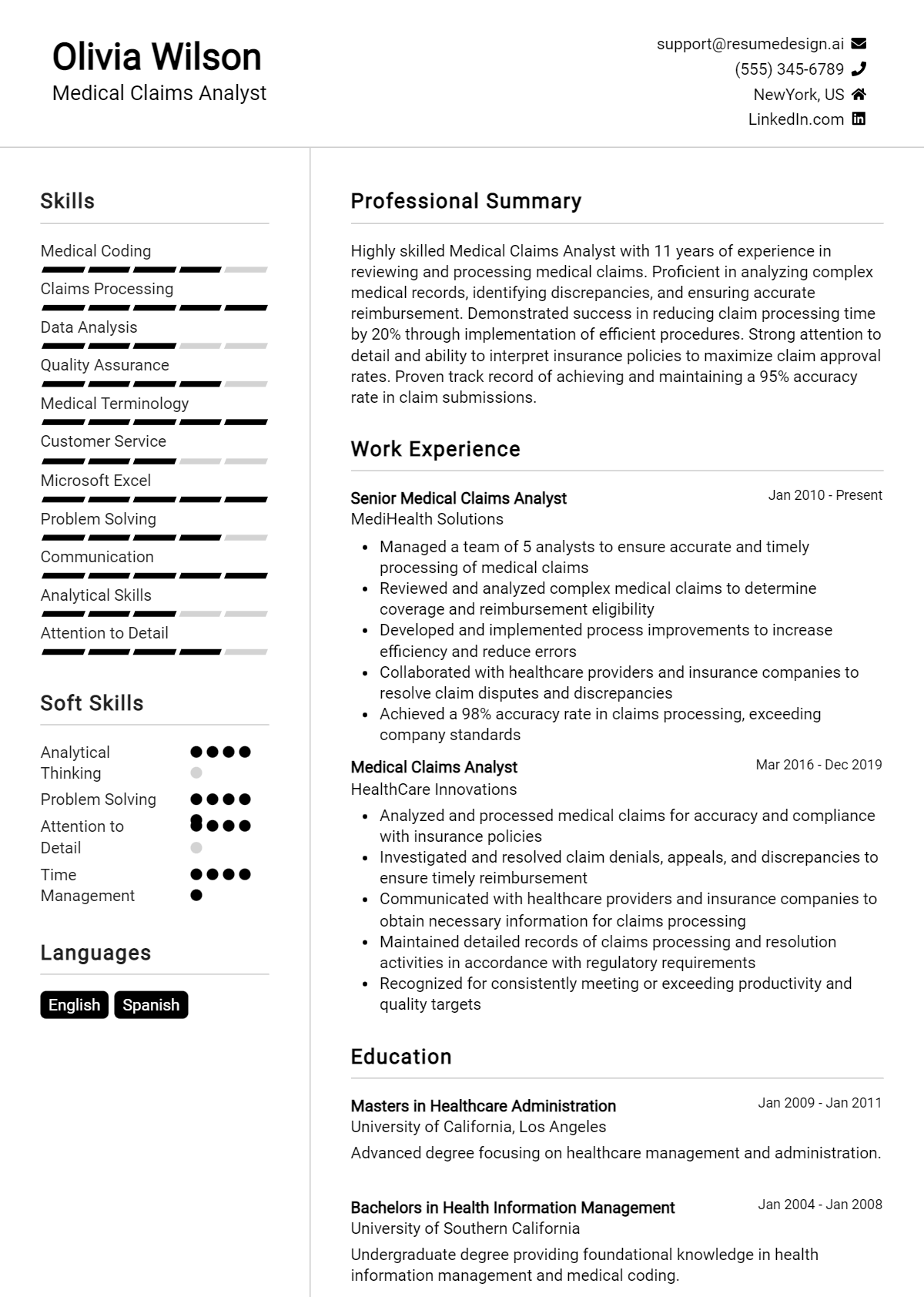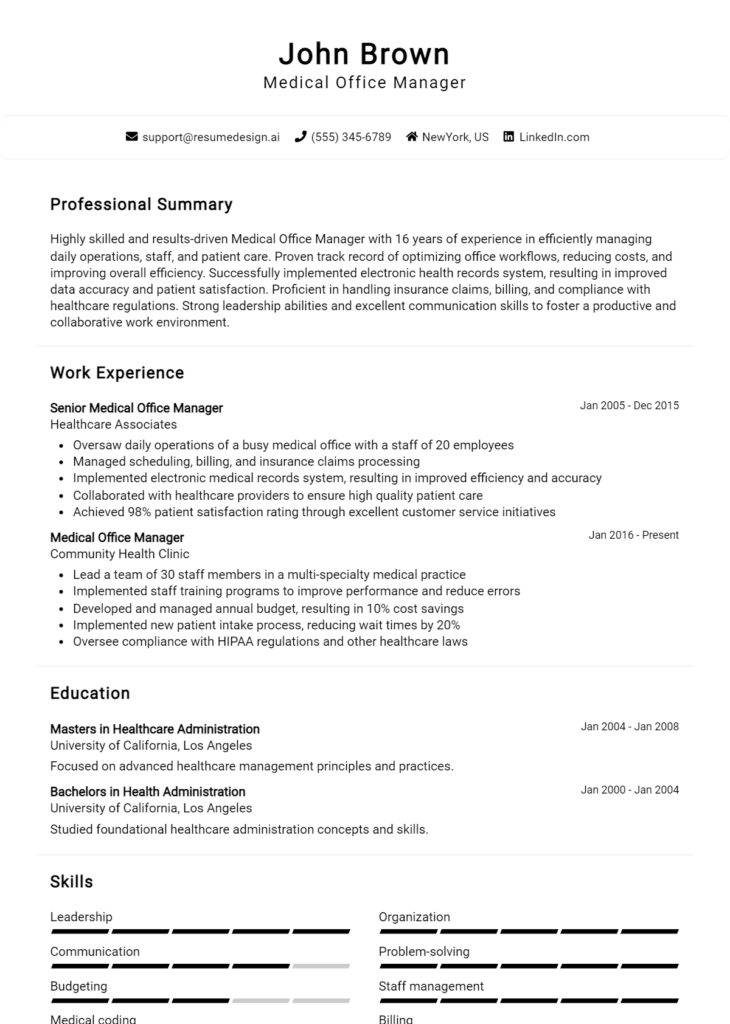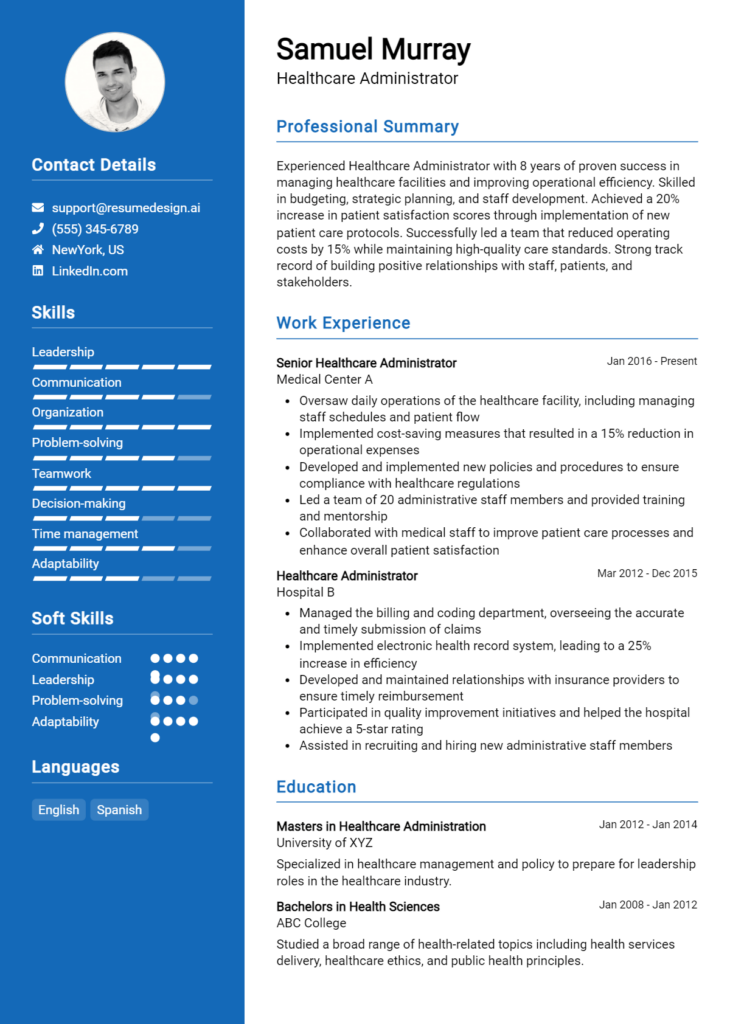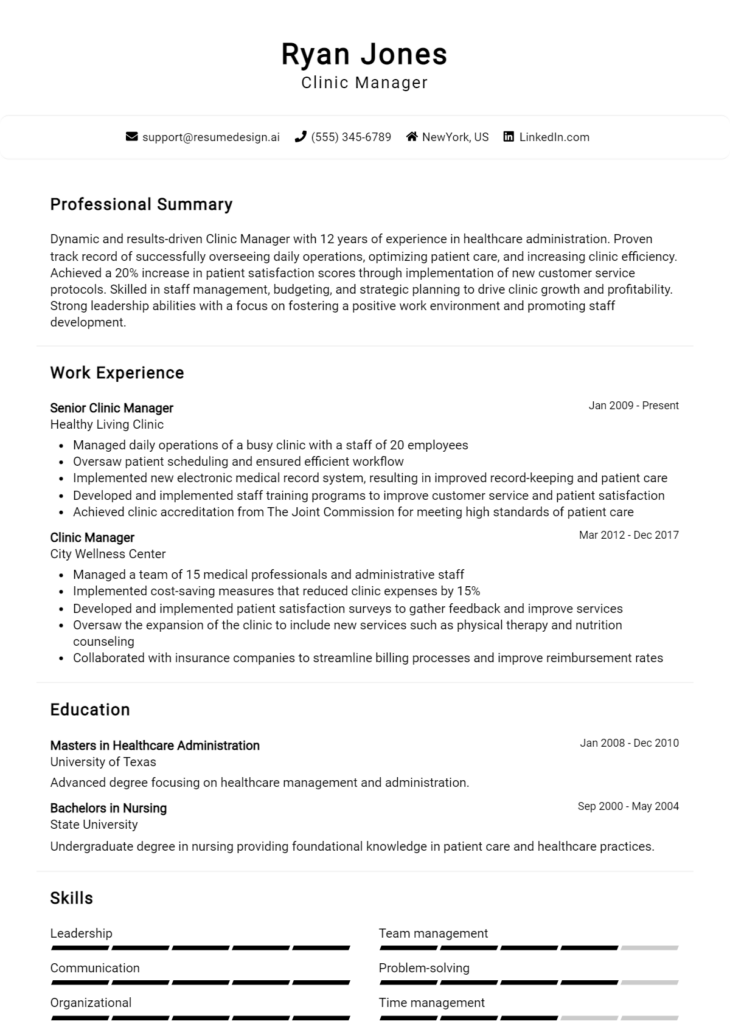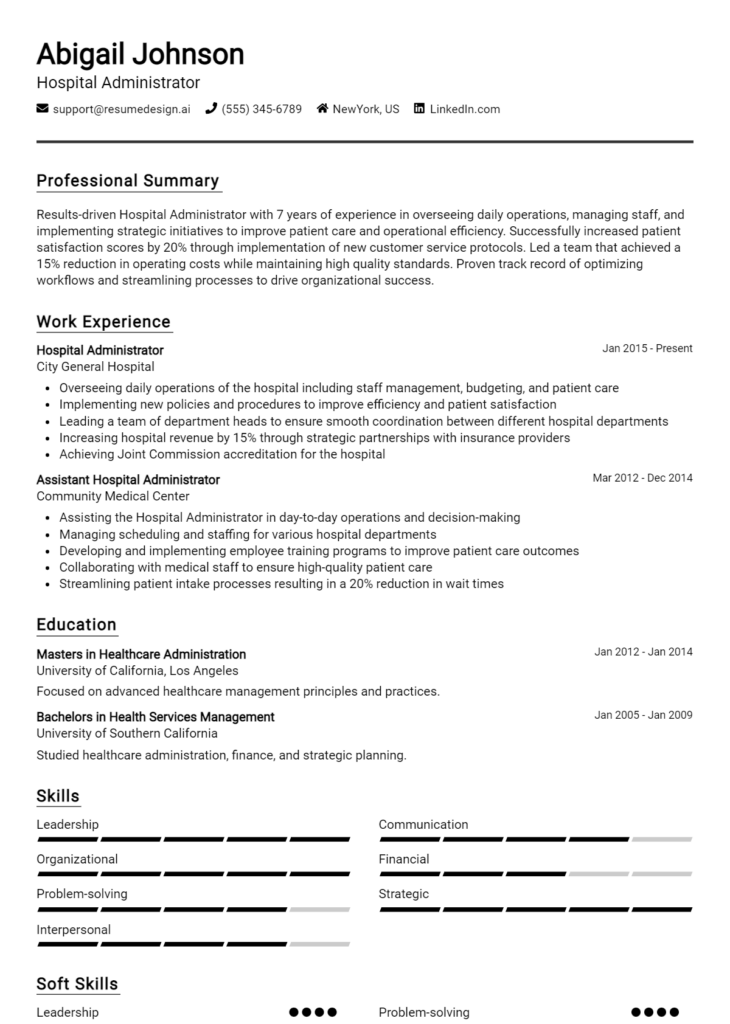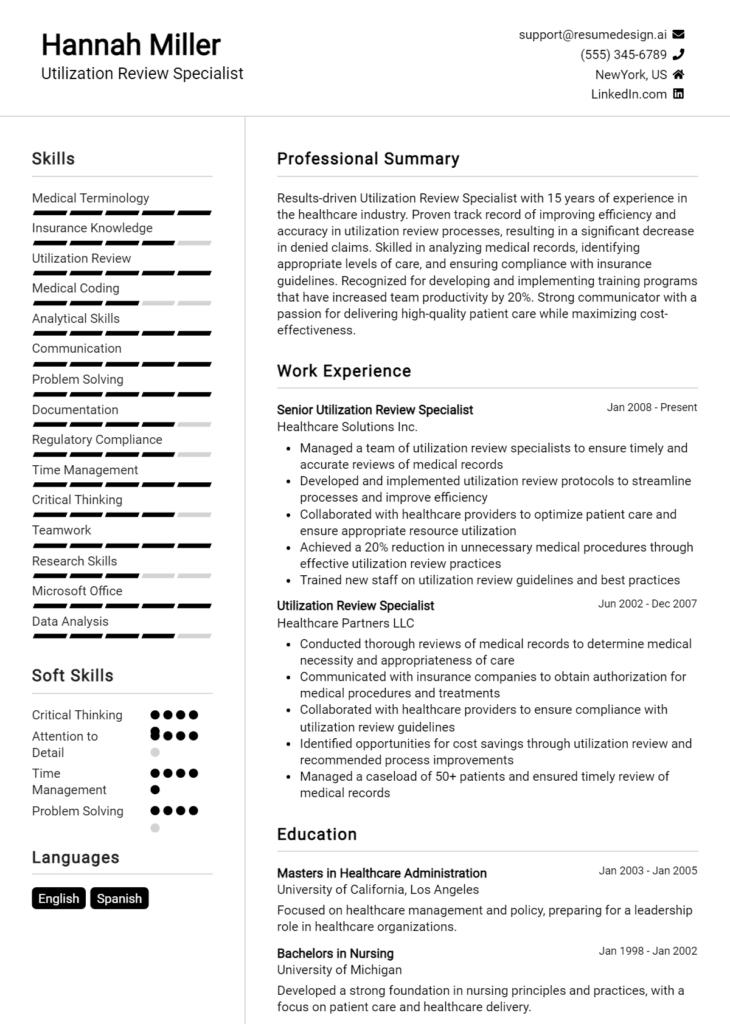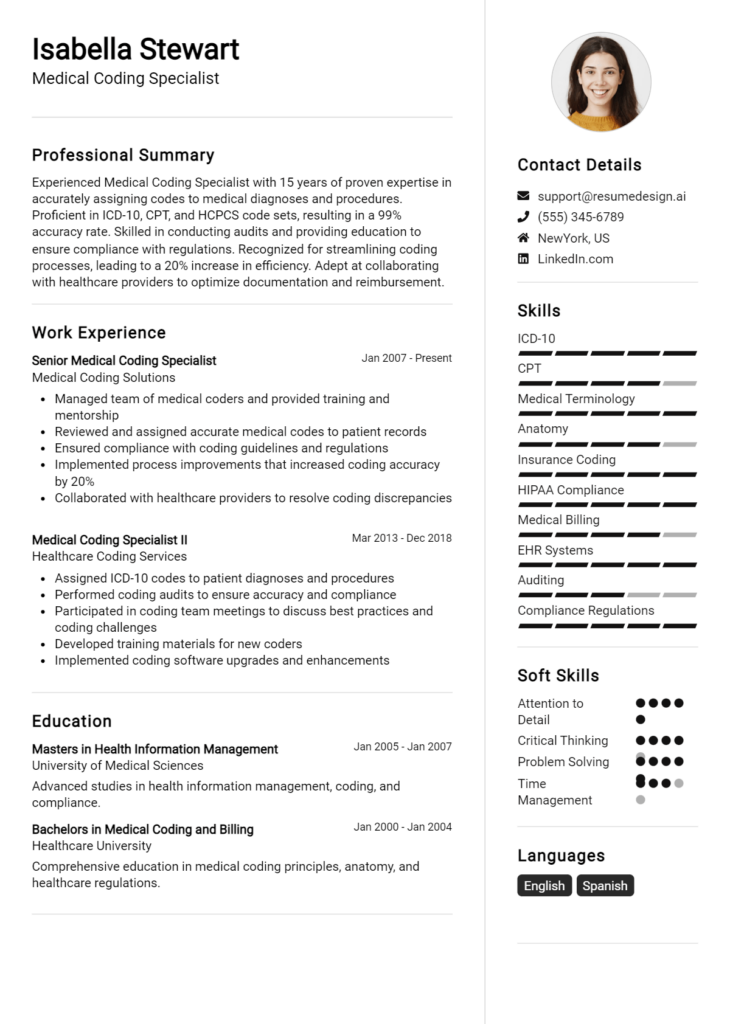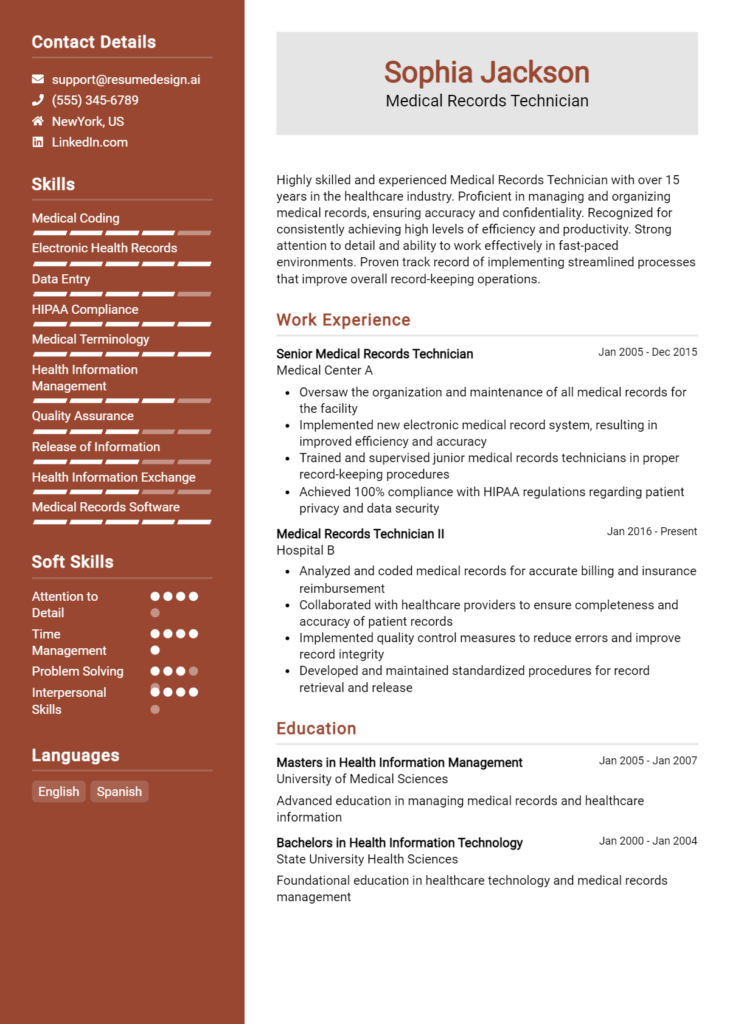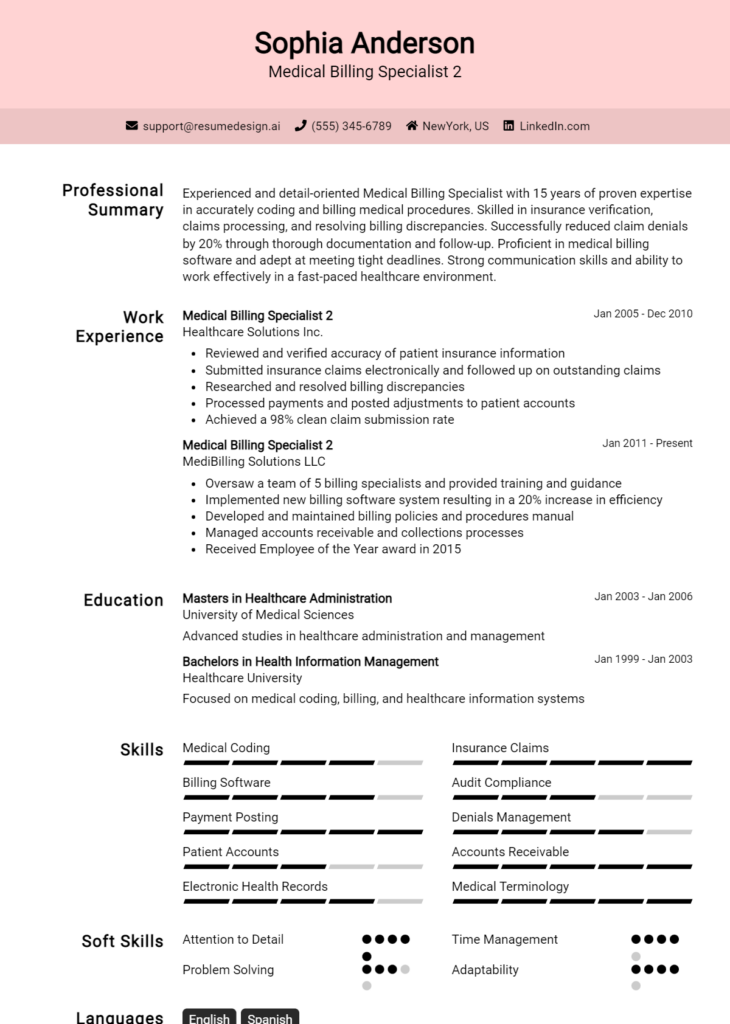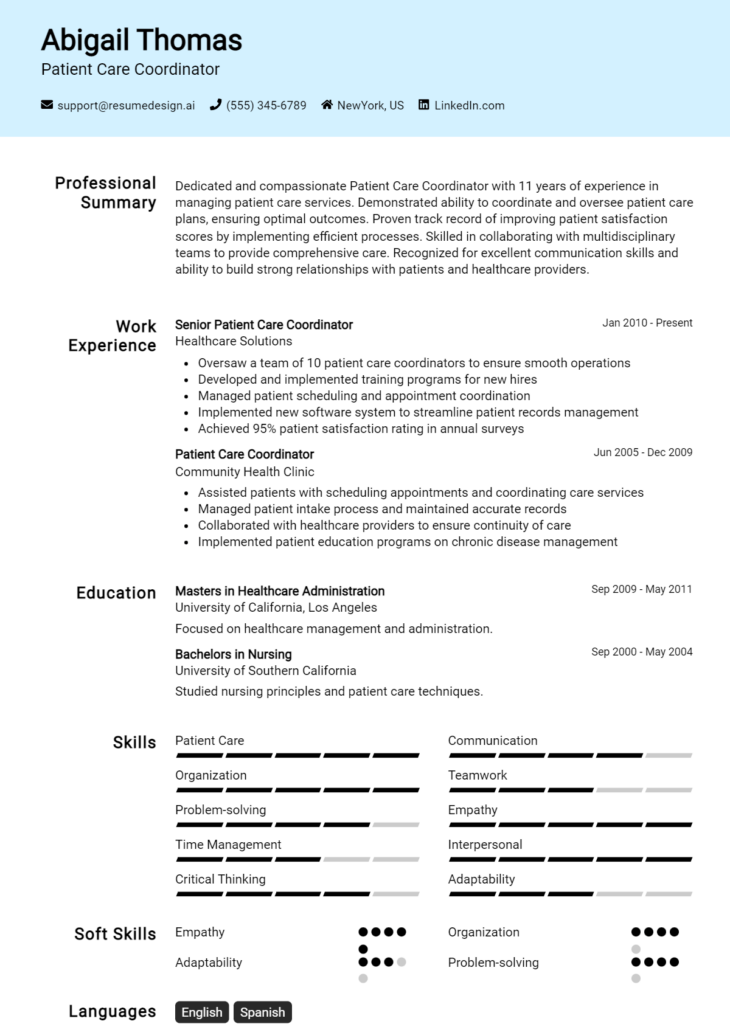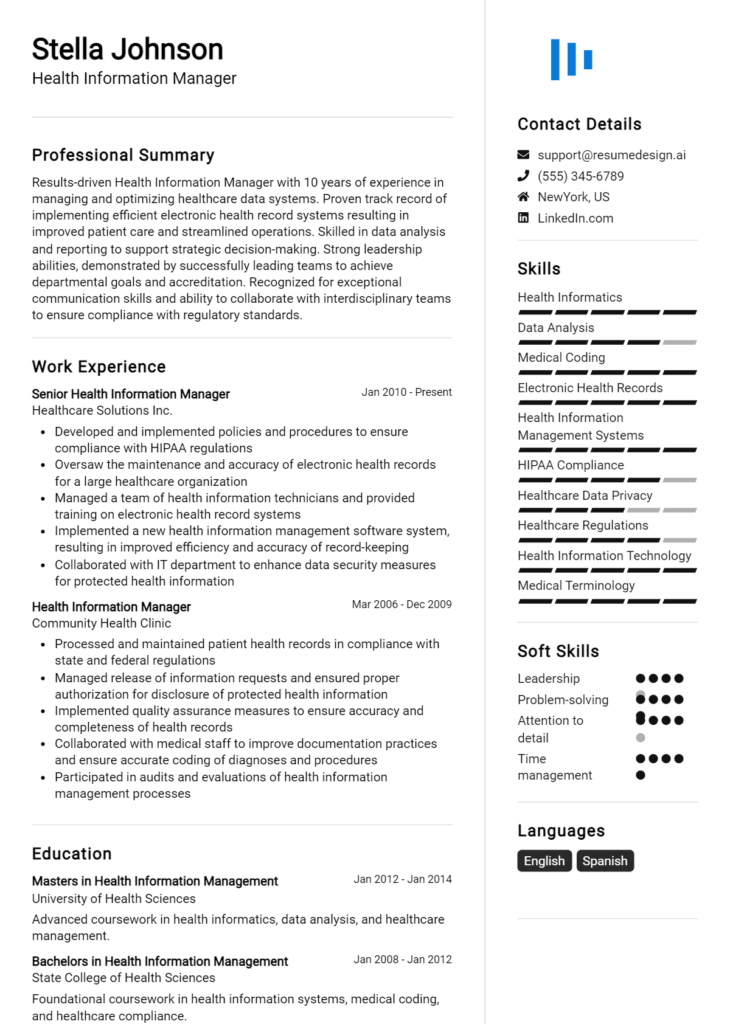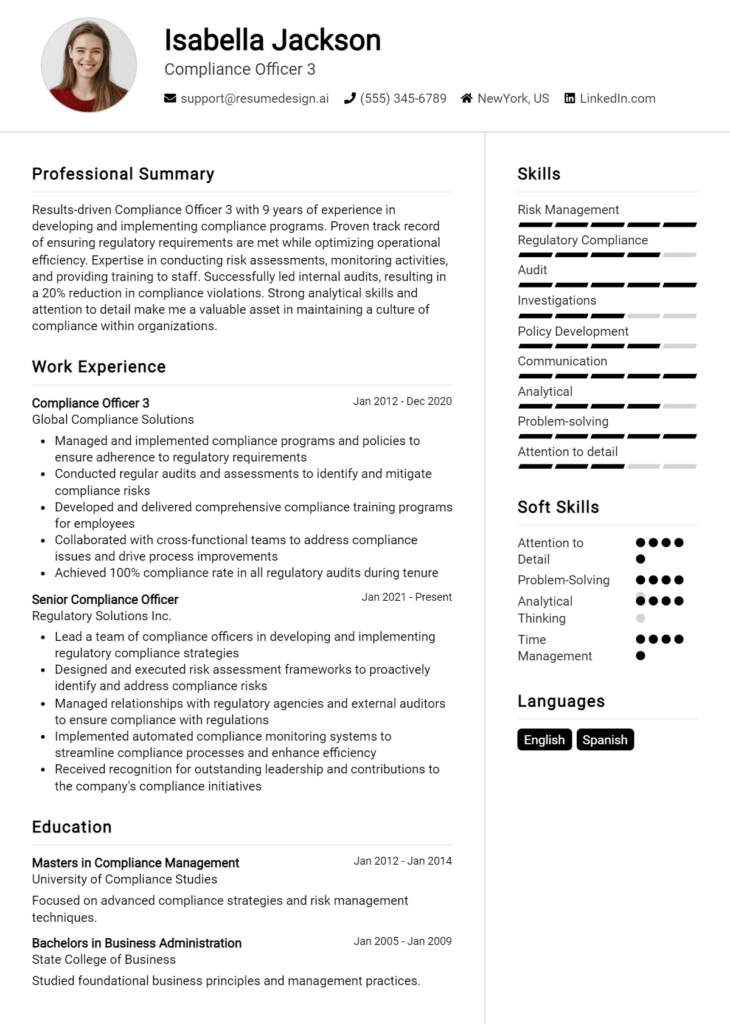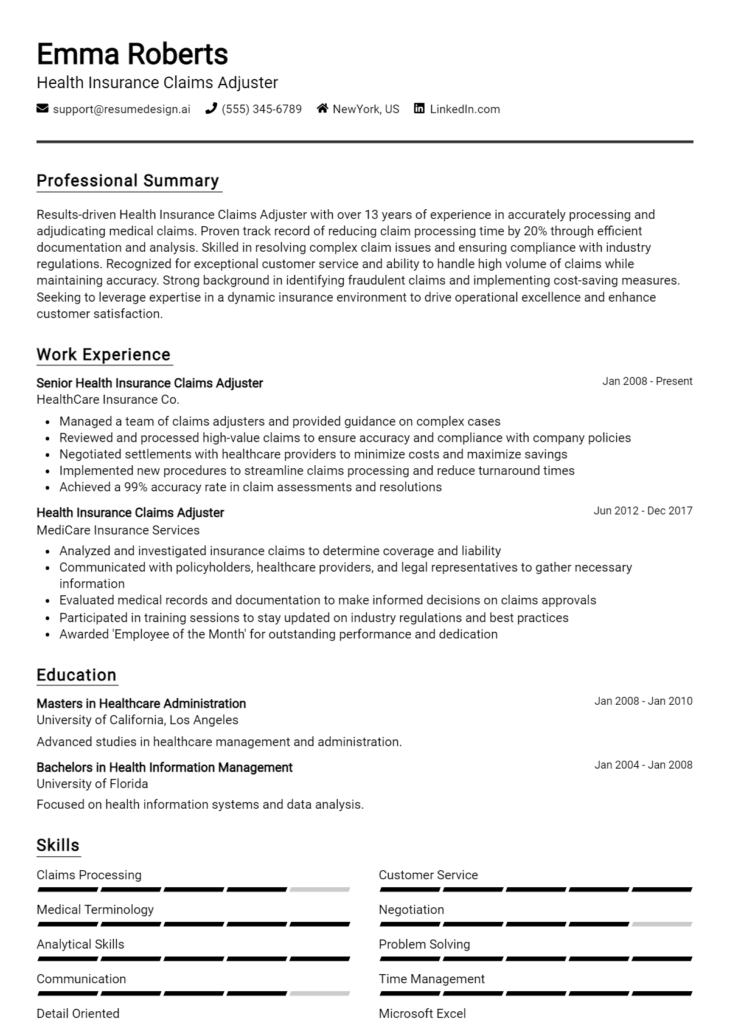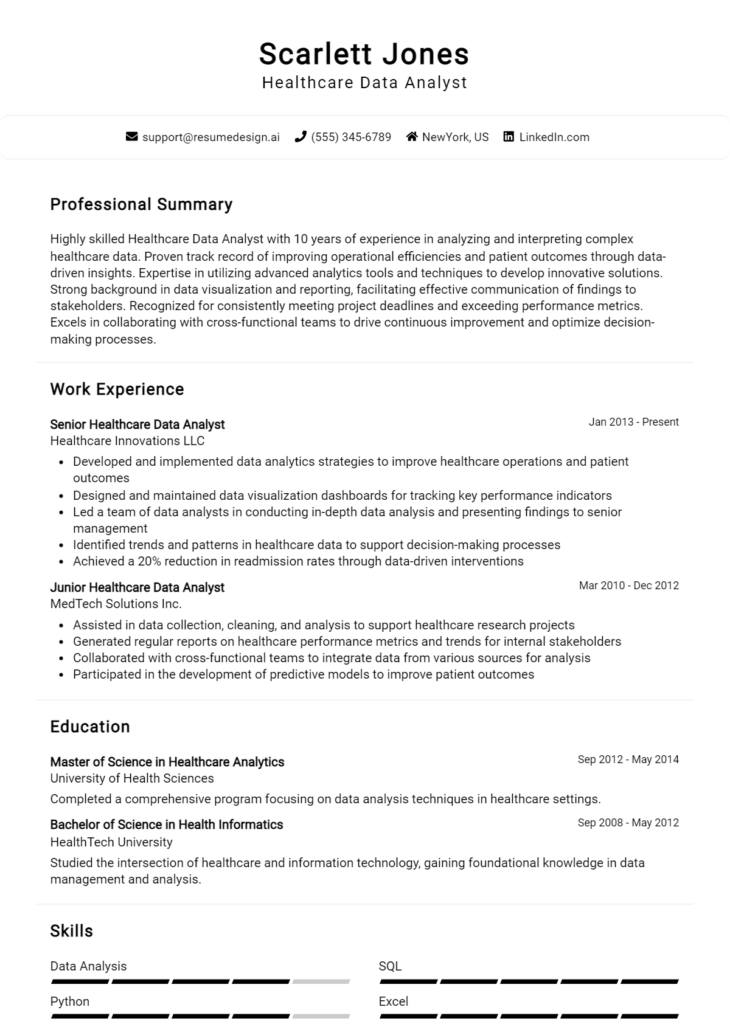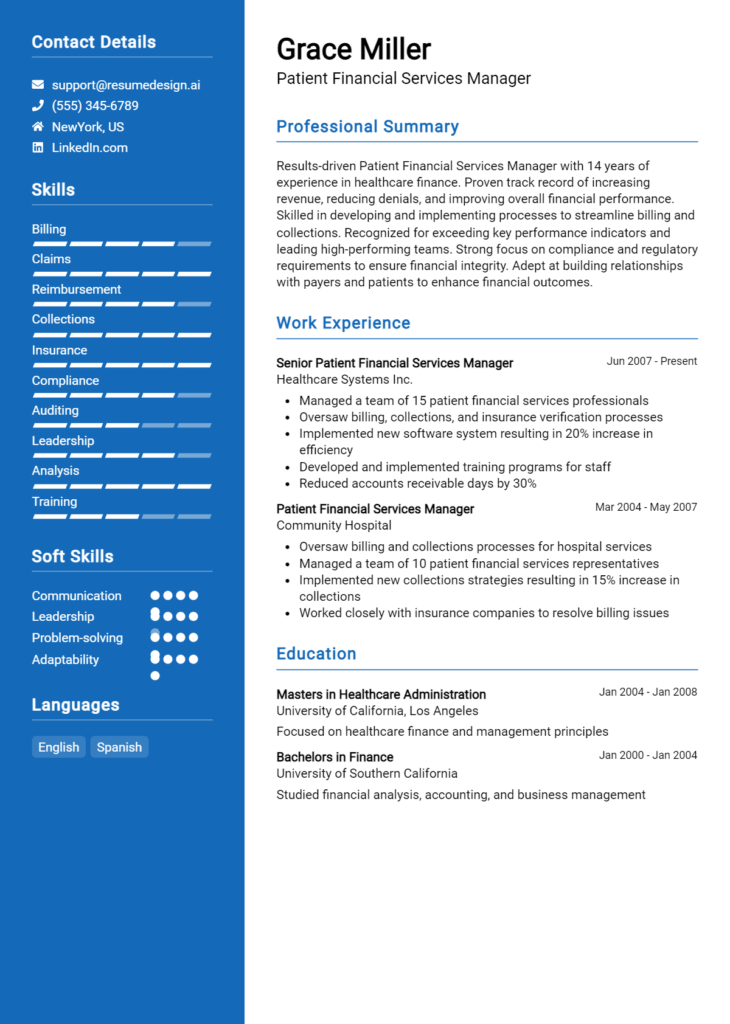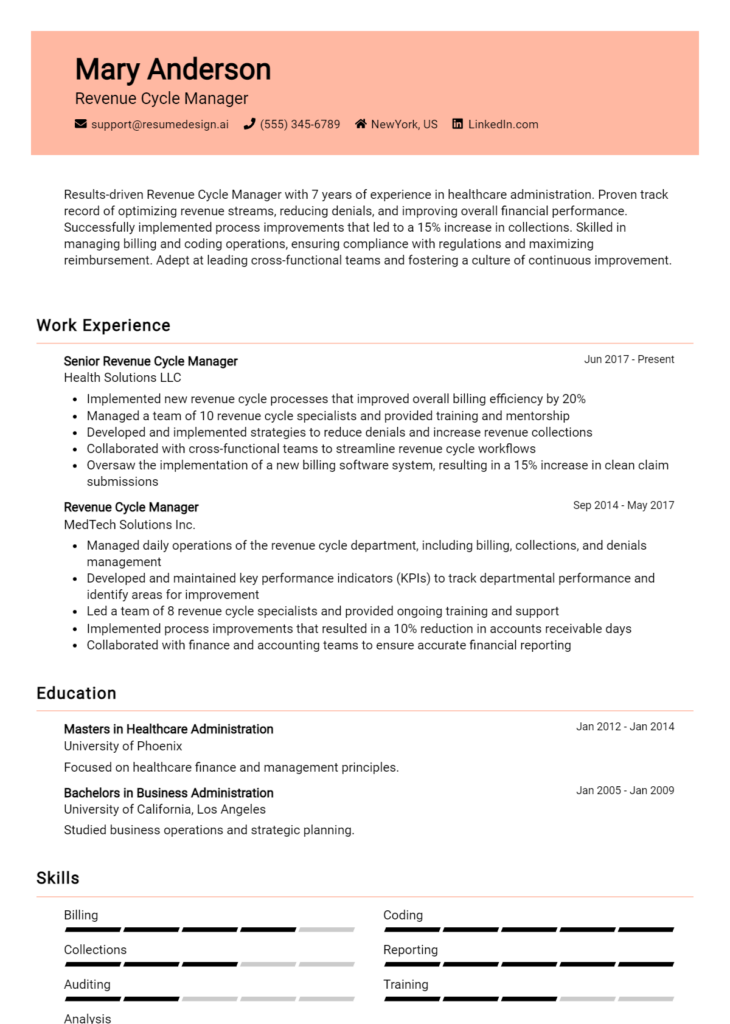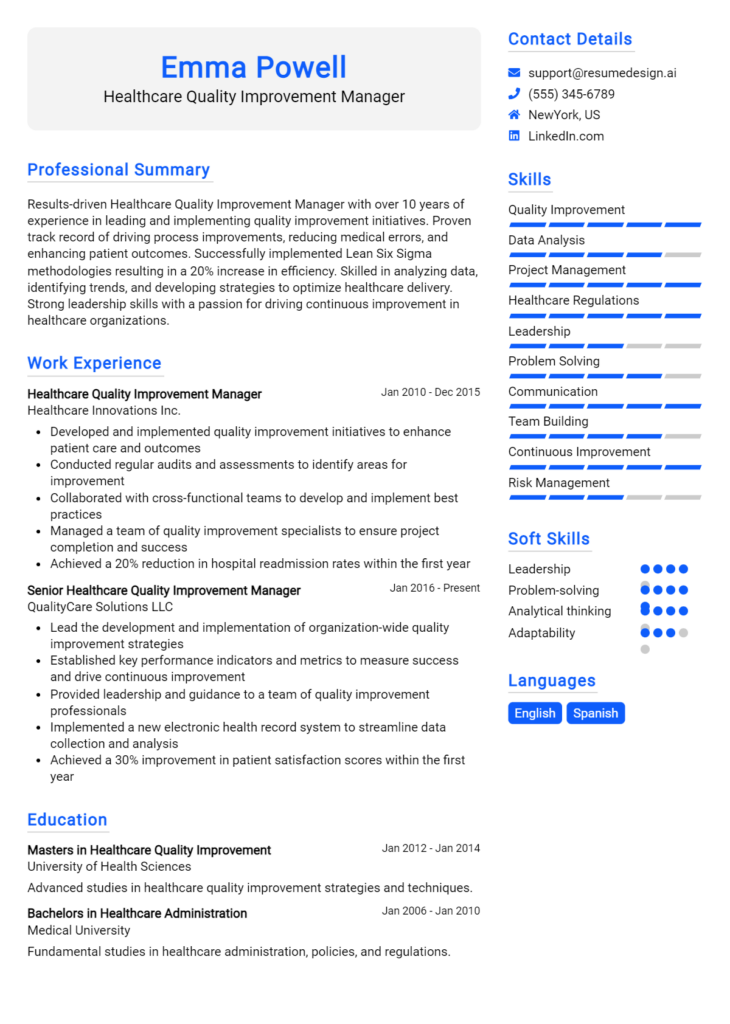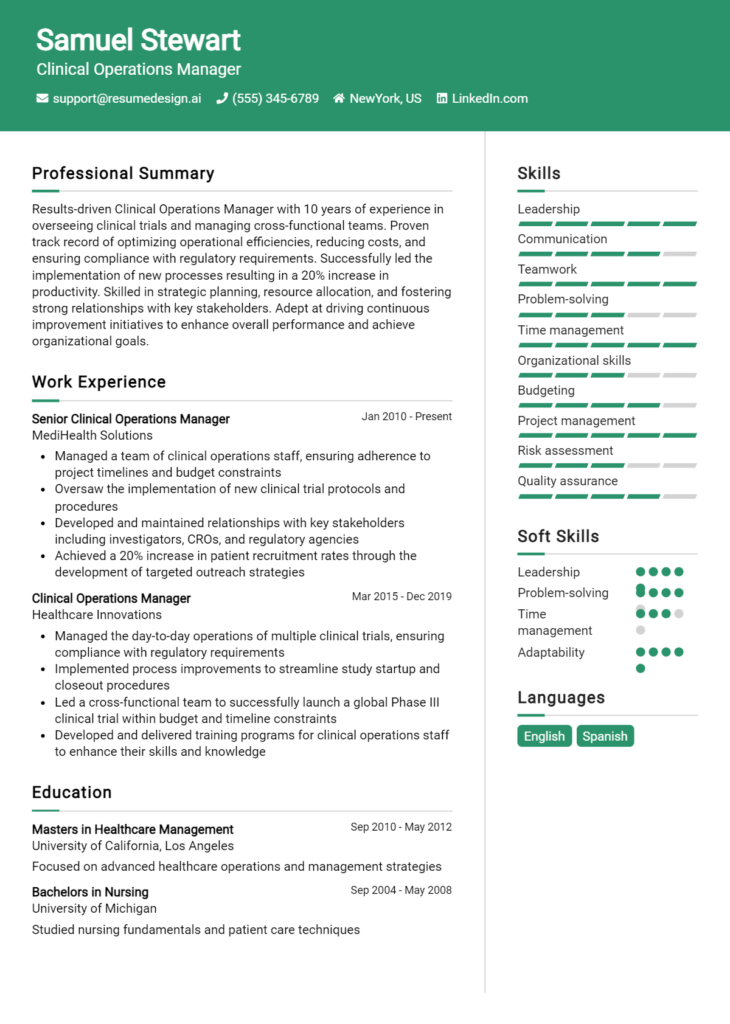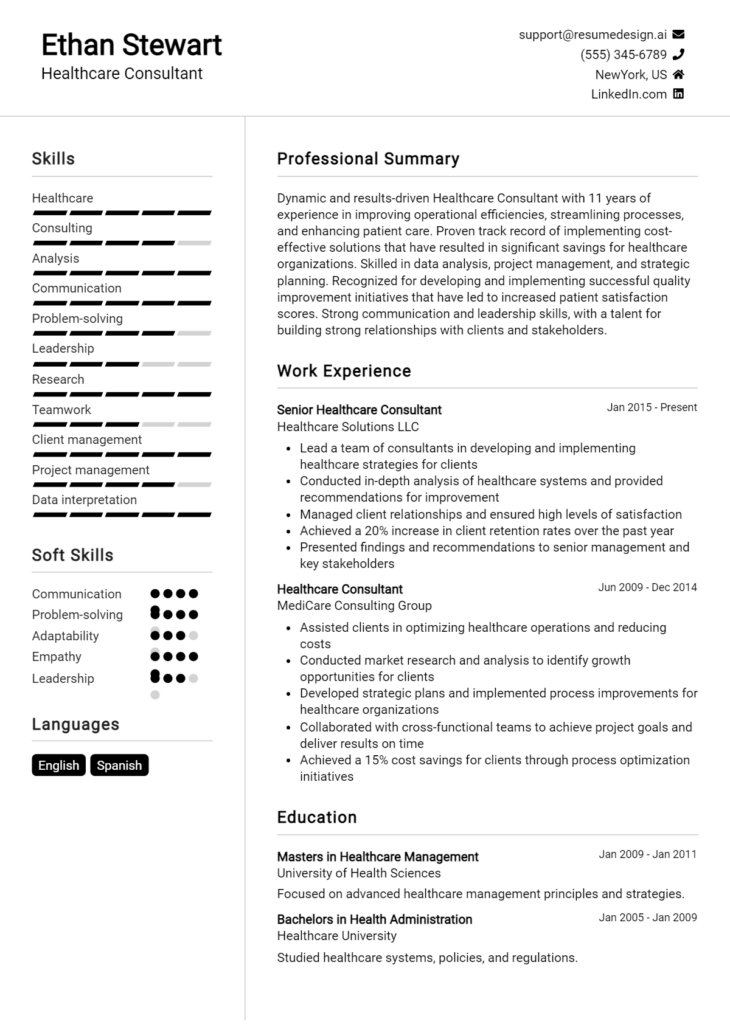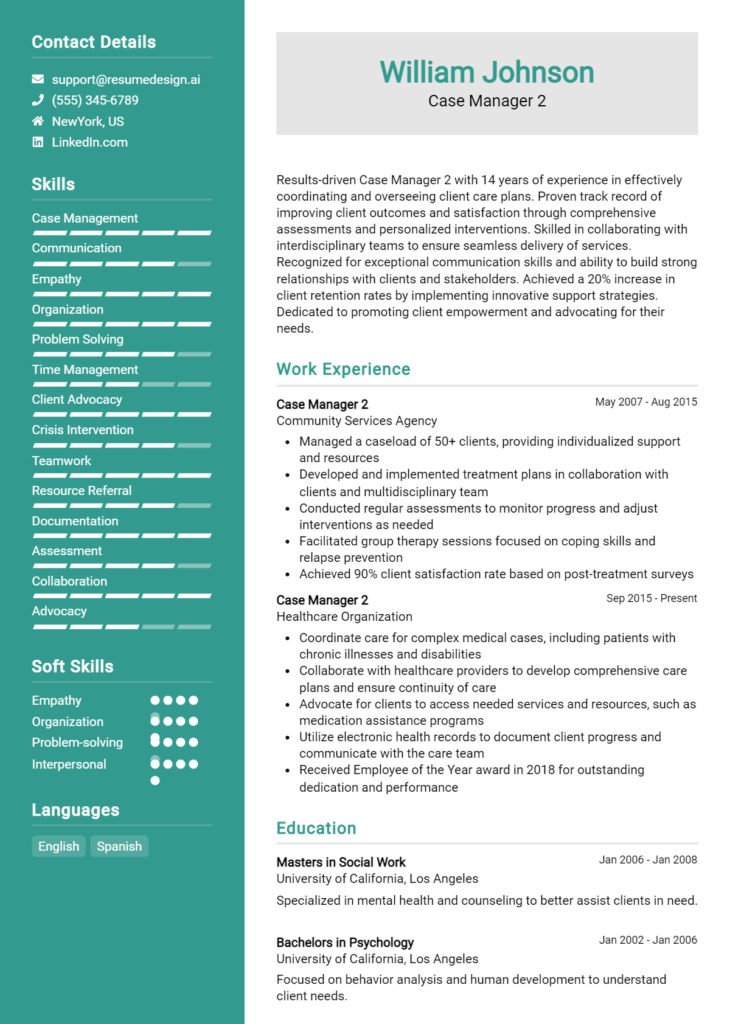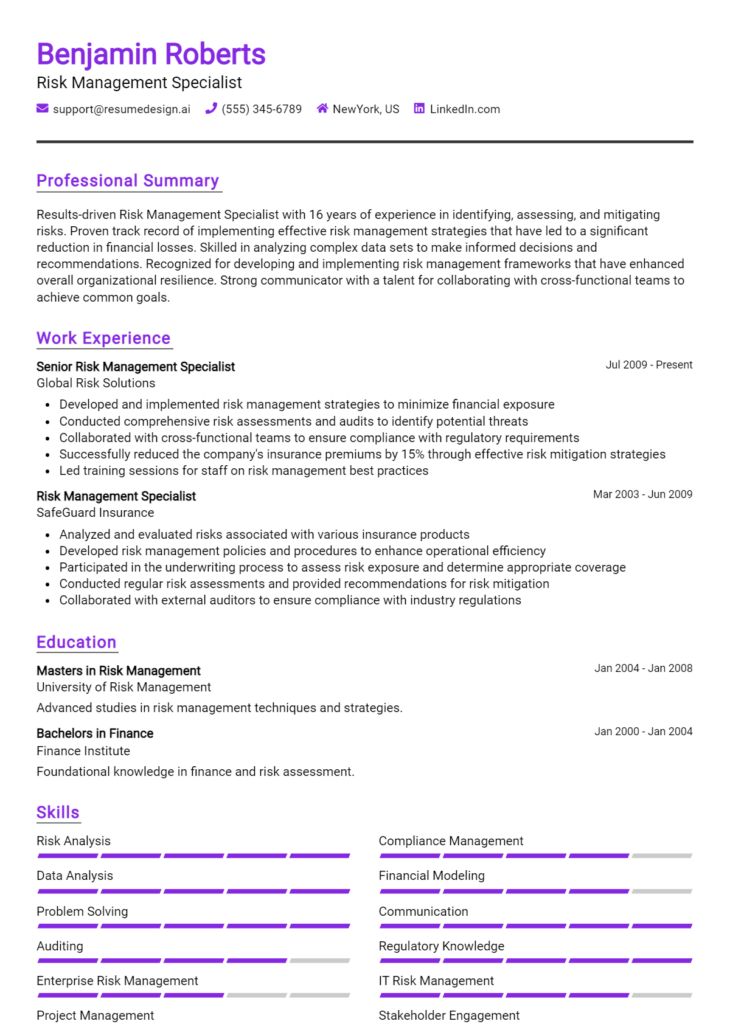Medical Claims Analyst Core Responsibilities
A Medical Claims Analyst plays a crucial role in the healthcare industry by ensuring accurate processing of claims between healthcare providers, insurers, and patients. This position requires strong analytical skills, attention to detail, and proficiency in claims processing software. Effective communication bridges departments such as billing, coding, and compliance, facilitating smooth operations. Problem-solving abilities are essential for addressing discrepancies and optimizing workflows. A well-structured resume can effectively highlight these competencies, showcasing the candidate’s potential to contribute to the organization’s overall goals.
Common Responsibilities Listed on Medical Claims Analyst Resume
- Review and analyze medical claims for accuracy and compliance.
- Coordinate with healthcare providers and insurance companies to resolve claim issues.
- Identify and investigate discrepancies in claims submissions.
- Maintain up-to-date knowledge of healthcare regulations and policies.
- Prepare and submit appeals for denied claims.
- Generate reports on claims processing metrics and trends.
- Provide training and support to staff on claims-related procedures.
- Collaborate with coding professionals to ensure correct coding practices.
- Assist in the development of best practices for claims management.
- Utilize software tools for claims processing and data analysis.
- Monitor and track claims from submission to payment.
High-Level Resume Tips for Medical Claims Analyst Professionals
In the competitive field of medical claims analysis, a well-crafted resume serves as a critical tool for professionals seeking to make a lasting impression on potential employers. As the first point of contact between candidates and hiring managers, the resume must effectively showcase not only the candidate's skills but also their achievements in the industry. A standout resume can open doors to interviews and ultimately secure a position in this essential sector of healthcare. This guide is designed to provide practical and actionable resume tips specifically tailored for Medical Claims Analyst professionals, ensuring that your application stands out in a crowded job market.
Top Resume Tips for Medical Claims Analyst Professionals
- Tailor your resume to each job description by incorporating relevant keywords and phrases to demonstrate alignment with the specific role.
- Highlight your relevant experience, including previous positions in medical billing, coding, or claims processing, to showcase your expertise.
- Quantify your achievements by including metrics such as the percentage of claims processed accurately or the reduction in claim denial rates you have achieved.
- Emphasize industry-specific skills such as knowledge of CPT and ICD-10 codes, familiarity with electronic medical record (EMR) systems, and proficiency in claims management software.
- Use action verbs to describe your responsibilities and accomplishments, creating a dynamic narrative that captures your contributions effectively.
- Include certifications relevant to the medical claims field, such as Certified Professional Coder (CPC) or Certified Medical Reimbursement Specialist (CMRS), to enhance your qualifications.
- Keep your resume concise, ideally one page, ensuring that each section is easy to read and highlights the most pertinent information.
- Incorporate a summary statement at the top of your resume that encapsulates your professional identity and key strengths as a Medical Claims Analyst.
- Proofread your resume meticulously to eliminate any errors or inconsistencies, as attention to detail is crucial in the medical claims field.
By implementing these tailored resume tips, candidates can significantly increase their chances of landing a job in the Medical Claims Analyst field. A focused and well-structured resume not only demonstrates a candidate’s qualifications but also reflects their commitment to the profession, ultimately making them a more attractive prospect to potential employers.
Why Resume Headlines & Titles are Important for Medical Claims Analyst
In the competitive field of healthcare, particularly for roles such as a Medical Claims Analyst, the importance of resume headlines and titles cannot be overstated. A well-crafted resume headline serves as an immediate attention-grabber for hiring managers, summarizing a candidate's key qualifications and aligning them with the needs of the role in a concise manner. By encapsulating relevant skills and experiences in one impactful phrase, a strong headline not only enhances the overall presentation of the resume but also sets the tone for the rest of the application. It should be clear, relevant, and directly related to the job being applied for, ensuring that the candidate stands out in a crowded applicant pool.
Best Practices for Crafting Resume Headlines for Medical Claims Analyst
- Be concise: Limit the headline to one impactful phrase that summarizes your qualifications.
- Use industry-specific terminology: Incorporate relevant keywords that resonate with the medical claims field.
- Highlight key achievements: Focus on your most notable accomplishments that relate to the role.
- Tailor to the job description: Customize your headline to reflect the specific requirements of the position.
- Showcase your expertise: Mention specific skills or areas of specialization in medical claims analysis.
- Avoid vague language: Steer clear of generic terms that do not convey your unique strengths.
- Use action-oriented words: Begin with strong verbs to demonstrate proactivity and competence.
- Keep it relevant: Ensure the headline directly relates to the Medical Claims Analyst position you are applying for.
Example Resume Headlines for Medical Claims Analyst
Strong Resume Headlines
Detail-Oriented Medical Claims Analyst with 5+ Years of Experience in Optimizing Claims Processing
Results-Driven Medical Claims Specialist Skilled in Analyzing and Reducing Reimbursement Denials
Certified Medical Claims Analyst with Proven Track Record in Claim Resolution and Compliance
Expert in Medical Billing and Coding with Extensive Knowledge of Healthcare Regulations
Weak Resume Headlines
Resume of a Medical Claims Analyst
Experienced Professional in Healthcare
Looking for a Job in Medical Claims
The strong headlines are effective because they are specific, relevant, and immediately convey the candidate's strengths and expertise in the medical claims field. They highlight achievements and qualifications that are aligned with the job description, making them stand out to hiring managers. In contrast, the weak headlines fail to impress because they are vague, non-specific, and do not provide any meaningful information about the candidate's qualifications or fit for the role. Such generic titles can easily be overlooked, as they do not differentiate the candidate from others or communicate a clear value proposition.
Writing an Exceptional Medical Claims Analyst Resume Summary
In the competitive field of medical claims analysis, a well-crafted resume summary serves as a vital marketing tool that can make all the difference in capturing the attention of hiring managers. A strong summary succinctly highlights key skills, relevant experience, and significant accomplishments that align with the requirements of the job role. It acts as an introduction to the candidate's qualifications, allowing hiring managers to quickly assess their suitability for the position. To be effective, the summary must be concise, impactful, and tailored to the specific job the candidate is pursuing, ensuring it stands out in a sea of applications.
Best Practices for Writing a Medical Claims Analyst Resume Summary
- Quantify achievements: Use specific numbers to demonstrate your impact, such as improvements in claim processing times or reductions in errors.
- Focus on relevant skills: Emphasize technical skills and knowledge pertinent to medical claims, such as coding, compliance, and data analysis.
- Tailor for the job description: Customize your summary to reflect the skills and experiences highlighted in the job listing.
- Use action verbs: Begin sentences with strong action verbs to convey a sense of proactivity and accomplishment.
- Highlight industry-specific knowledge: Mention any familiarity with healthcare regulations, insurance policies, or medical terminology.
- Keep it concise: Aim for 3-5 sentences that deliver a powerful message without overwhelming the reader.
- Showcase soft skills: Include interpersonal skills such as communication and problem-solving that are valuable in claims analysis roles.
- Include certifications: If applicable, mention relevant certifications such as Certified Professional Coder (CPC) or Certified Medical Reimbursement Specialist (CMRS).
Example Medical Claims Analyst Resume Summaries
Strong Resume Summaries
Detail-oriented Medical Claims Analyst with over 5 years of experience in processing and reviewing medical claims, achieving a 30% reduction in claim denials through meticulous audits and a strong understanding of coding regulations.
Results-driven Medical Claims Analyst skilled in managing high-volume claims with a 98% accuracy rate. Successfully implemented a new tracking system that improved processing efficiency by 25%, ensuring timely reimbursements for healthcare providers.
Dedicated Medical Claims Analyst with expertise in HIPAA compliance and extensive knowledge of insurance policies. Recognized for outstanding performance in a fast-paced environment, reducing claim turnaround time by 40% while maintaining exceptional customer satisfaction.
Weak Resume Summaries
Experienced analyst looking for a position in medical claims. I have skills in data entry and some knowledge of insurance.
I am a hard worker with experience in the healthcare field. I want to help process medical claims effectively.
The examples provided demonstrate a clear distinction between strong and weak resume summaries. Strong summaries effectively quantify achievements, showcase specific skills, and directly relate to the responsibilities of a Medical Claims Analyst. They convey a sense of accomplishment and relevance to the role. In contrast, weak summaries lack specificity, quantifiable outcomes, and appear overly generic, failing to engage hiring managers or communicate the candidate’s capabilities effectively.
Work Experience Section for Medical Claims Analyst Resume
The work experience section of a Medical Claims Analyst resume is essential as it serves as a comprehensive showcase of the candidate's technical skills, project management capabilities, and commitment to delivering high-quality outcomes. This section allows potential employers to evaluate how well the candidate aligns with industry standards and their ability to contribute to the organization. By quantifying achievements—such as the percentage of claims processed accurately or the reduction of processing time—candidates can effectively demonstrate their impact in previous roles. Moreover, emphasizing collaboration within teams highlights the candidate’s ability to work effectively in a multidisciplinary environment, which is crucial in the healthcare industry.
Best Practices for Medical Claims Analyst Work Experience
- Use specific metrics to quantify achievements, such as the number of claims processed or the percentage of successful appeals.
- Highlight relevant technical skills, such as proficiency in claims processing software and knowledge of coding systems.
- Emphasize team collaboration experiences, showcasing how you worked with healthcare professionals to improve claim accuracy.
- Focus on relevant industry standards and compliance regulations to show your understanding of the healthcare landscape.
- Include leadership roles or initiatives that demonstrate your ability to guide teams towards achieving goals.
- Tailor your experience to match the job description, emphasizing the skills and experiences that are most relevant.
- Utilize action verbs to convey your contributions clearly and effectively.
- Keep descriptions concise and focused on outcomes, avoiding unnecessary jargon or vague statements.
Example Work Experiences for Medical Claims Analyst
Strong Experiences
- Processed over 1,500 medical claims monthly with a 98% accuracy rate, significantly reducing the backlog by 30% within six months.
- Led a cross-functional team to implement a new claims processing software, resulting in a 25% decrease in processing time and improved team efficiency.
- Collaborated with healthcare providers to develop a streamlined claims submission process that improved approval rates by 40% over one year.
- Conducted training sessions for new analysts, enhancing team competency and reducing onboarding time by 20% through effective knowledge transfer.
Weak Experiences
- Worked on claims processing tasks as assigned, contributing to the overall workflow.
- Assisted in handling claims for various patients without specifying any results or improvements.
- Participated in team meetings to discuss claims issues, but did not detail any outcomes or personal contributions.
- Involved in reviewing claims documents with no indication of accuracy or efficiency improvements.
The examples provided illustrate the distinction between strong and weak experiences based on their specificity and impact. Strong experiences are characterized by quantifiable outcomes, clear demonstrations of technical expertise, and effective teamwork, while weak experiences lack detail and fail to showcase the candidate's contributions or achievements. By focusing on measurable results and responsibilities, candidates can significantly enhance the effectiveness of their work experience section in a Medical Claims Analyst resume.
Education and Certifications Section for Medical Claims Analyst Resume
The education and certifications section of a Medical Claims Analyst resume is crucial for showcasing the candidate's academic background and professional qualifications. This section serves as a testament to the candidate's commitment to the field, highlighting relevant degrees, industry-recognized certifications, and any specialized training that enhances their expertise. By detailing coursework that aligns with the job role and emphasizing continuous learning efforts, candidates can significantly boost their credibility and demonstrate their readiness for the challenges of the position.
Best Practices for Medical Claims Analyst Education and Certifications
- Prioritize relevant degrees such as a Bachelor’s in Healthcare Administration, Medical Billing, or a related field.
- Include industry-recognized certifications such as the Certified Professional Coder (CPC) or Certified Medical Reimbursement Specialist (CMRS).
- Detail relevant coursework that directly pertains to medical billing, coding, and claims processing.
- Highlight any specialized training or workshops attended that enhance skills in medical claims analysis.
- List certifications in order of relevance and date obtained, starting with the most recent.
- Keep descriptions concise while ensuring clarity regarding how each qualification contributes to job readiness.
- Update this section regularly to reflect any new certifications or educational achievements.
- Use clear formatting to enhance readability and make important qualifications stand out.
Example Education and Certifications for Medical Claims Analyst
Strong Examples
- Bachelor of Science in Healthcare Administration, XYZ University, 2022
- Certified Professional Coder (CPC), American Academy of Professional Coders, 2023
- Coursework in Medical Billing and Coding, ABC Community College, 2021
- Certification in Health Information Technology, National Association of Healthcare Professionals, 2023
Weak Examples
- Bachelor of Arts in English Literature, XYZ University, 2010
- Certification in Basic Computer Skills, Online Learning Platform, 2019
- High School Diploma, ABC High School, 2005
- Outdated coding certification from 2010 with no current validity.
The strong examples listed reflect qualifications that are directly applicable to the role of a Medical Claims Analyst, showcasing relevant degrees and up-to-date certifications that demonstrate a commitment to the field. In contrast, the weak examples illustrate qualifications that lack relevance or are outdated, which could lead to a diminished perception of the candidate's suitability for the position. Providing strong educational and certification credentials is essential for standing out in a competitive job market.
Top Skills & Keywords for Medical Claims Analyst Resume
As a Medical Claims Analyst, possessing the right skills is crucial for success in this specialized field. The role involves scrutinizing medical claims, ensuring compliance with regulations, and facilitating accurate reimbursement processes. A well-crafted resume that highlights relevant skills not only demonstrates your expertise but also sets you apart from other candidates. By showcasing both hard and soft skills, you can effectively communicate your ability to navigate complex claim processes, analyze data, and collaborate with healthcare professionals. This balance of skills is essential for driving efficiency and accuracy in claims management.
Top Hard & Soft Skills for Medical Claims Analyst
Soft Skills
- Attention to Detail
- Analytical Thinking
- Problem-Solving
- Communication Skills
- Time Management
- Team Collaboration
- Adaptability
- Customer Service Orientation
- Critical Thinking
- Organizational Skills
- Conflict Resolution
- Empathy
- Negotiation Skills
- Interpersonal Skills
- Decision-Making
- Initiative
- Stress Management
- Multitasking
Hard Skills
- Knowledge of Medical Terminology
- Claims Processing Software Proficiency
- Understanding of Health Insurance Policies
- Familiarity with ICD-10 and CPT Coding
- Data Analysis and Reporting
- Regulatory Compliance Knowledge
- Proficient in Microsoft Excel
- Experience with Electronic Health Records (EHR)
- Ability to Interpret Medical Records
- Risk Assessment Skills
- Knowledge of Reimbursement Models
- Familiarity with HIPAA Regulations
- Database Management
- Quality Assurance Techniques
- Financial Analysis
- Medical Billing Expertise
- Claim Denial Management
- Statistical Analysis Techniques
By effectively integrating these skills into your resume, along with showcasing your work experience, you will enhance your qualifications and appeal to potential employers in the medical claims industry.
Stand Out with a Winning Medical Claims Analyst Cover Letter
Dear Hiring Manager,
I am writing to express my interest in the Medical Claims Analyst position at [Company Name], as advertised on [where you found the job listing]. With a strong background in healthcare administration and a proven track record in claims processing, I am excited about the opportunity to contribute to your team. My experience in analyzing claims data and ensuring compliance with regulatory requirements has equipped me with the skills necessary to excel in this role.
In my previous position at [Previous Company Name], I successfully managed a high volume of medical claims, ensuring accuracy and timely processing. I developed a keen eye for detail, which allowed me to identify discrepancies and prevent fraudulent claims, ultimately saving the company significant costs. Additionally, my ability to communicate effectively with healthcare providers and insurance companies has fostered positive working relationships that facilitate smoother claims resolution processes. I am adept at utilizing various healthcare management software, which enhances my efficiency in analyzing claims and generating reports.
I am particularly drawn to this opportunity at [Company Name] because of your commitment to providing high-quality healthcare services and innovative solutions in claims processing. I am eager to bring my analytical skills and passion for improving healthcare operations to your esteemed organization. I believe that my proactive approach and dedication to excellence in the claims analysis process would make me a valuable asset to your team.
Thank you for considering my application. I look forward to the opportunity to discuss how my experience and skills align with the needs of [Company Name]. I am excited about the possibility of contributing to your mission and enhancing the effectiveness of your claims processing operations.
Sincerely,
[Your Name]
[Your Phone Number]
[Your Email Address]
Common Mistakes to Avoid in a Medical Claims Analyst Resume
When crafting a resume for the role of a Medical Claims Analyst, it's crucial to present a professional and detailed document that highlights relevant skills and experiences. However, many applicants make common mistakes that can hinder their chances of landing an interview. Avoiding these pitfalls can significantly enhance the effectiveness of your resume and showcase your qualifications more clearly.
Lack of Relevant Keywords: Not including industry-specific keywords can cause your resume to be overlooked by Applicant Tracking Systems (ATS) that scan for specific terms related to medical claims processing.
Vague Job Descriptions: Providing unclear or overly general descriptions of past roles can leave hiring managers uncertain about your actual responsibilities and achievements.
Ignoring Quantifiable Achievements: Failing to include measurable accomplishments, such as the number of claims processed or reduction in processing time, can make it difficult to demonstrate your impact in previous roles.
Overstuffed Resume: Including too much information or irrelevant details can make your resume cluttered and hard to read. It's important to focus on the most pertinent experiences and skills.
Inconsistent Formatting: A resume that lacks a consistent format can appear unprofessional. Ensure that font styles, sizes, and spacing are uniform throughout the document.
Typos and Grammatical Errors: Simple mistakes in spelling or grammar can undermine your credibility and attention to detail, both of which are crucial in the field of medical claims analysis.
Not Tailoring the Resume: Sending out a generic resume without customizing it for each specific job application can result in missed opportunities. Tailoring your resume to align with the specific job description shows genuine interest and effort.
Neglecting Soft Skills: While technical skills are essential, overlooking soft skills like communication, problem-solving, and teamwork can give an incomplete picture of your capabilities as a Medical Claims Analyst.

